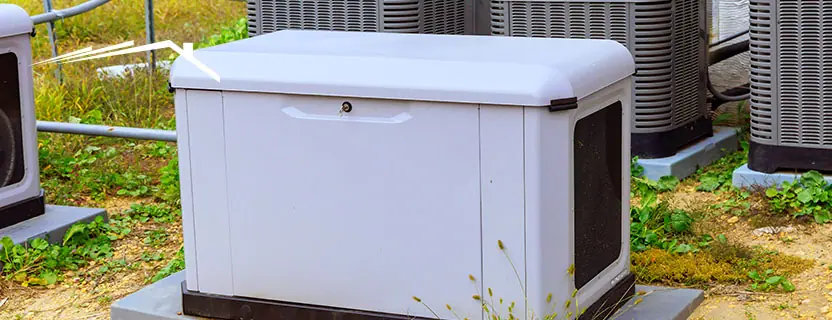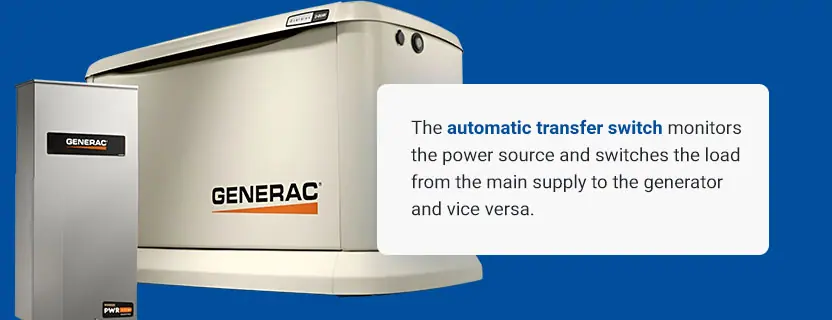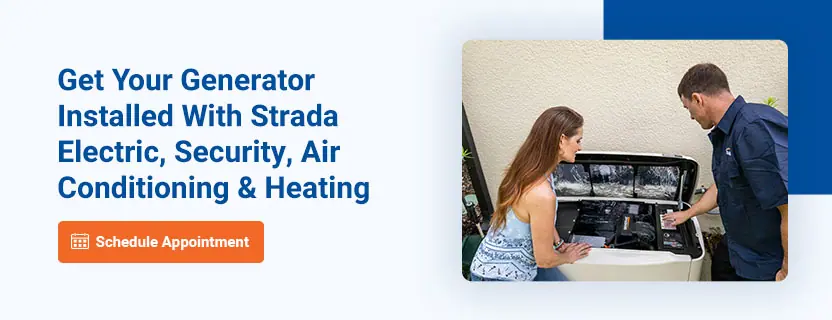
Residential backup generators have become increasingly sought-after, especially in Florida — a state that routinely deals with power outages from severe weather like hurricanes and tropical storms. Lost power is not merely an inconvenience — it is a safety hazard that can cause food spoilage and endanger people who rely on powered medical equipment. If you have a permanent backup generator, you can power your home until the electric company restores the utilities.
But how do home backup generators work, and is it safe to have one? This guide will answer your questions and help you decide whether your household should be “on” all the time.
A backup generator is a secondary electrical system that automatically provides power to your home during a power outage or failure. It ensures continuous electricity, allowing your HVAC, lights and other critical technology to keep working even when the power grid goes down in inclement weather. When something interrupts the power supply, the backup generator will kick in and supply electricity to predetermined circuits or your entire home, depending on its capacity.
This equipment comes in different sizes and capacities. Residential models are small but mighty, powering essential appliances like your refrigerator or air conditioner. Large commercial and industrial models maintain operations for businesses, hospitals, data centers and other critical facilities.
A standby generator offers priceless peace of mind by providing a reliable and immediate power source in emergencies like floods and storms.
Several mechanical parts comprise most generators. These will vary in size and power depending on what you get.
The choice of fuel for the generator often depends on availability, cost and storage considerations. For example, natural gas generators are popular because they connect to existing gas lines, eliminating the need to store fuel. Some other common types of fuel include:

The automatic transfer switch monitors the power source and switches the load from the main supply to the generator and vice versa. There are two primary types — the whole-house transfer and the load center transfer.
The whole-house transfer provides backup power to your entire house, which is ideal for larger homes that need to handle full loads. Every appliance, outlet and light will work as if the outage never happened.
A load center transfer switch integrates with your home’s main electrical panel. It contains a sub-panel with essential circuits and selections for backup power. The generator will only power the connected circuits when the electricity goes out. Usually, these include crucial appliances such as fridges, freezers and medical devices.
Generators have a switch called the ATS, which links to your home’s electrical panel. It collaborates with the backup generator and observes the connection to the utility power. It will quickly activate the generator if the electricity goes out, offering a power source. Once the power comes back on, the switch will automatically transfer the load.
Yes. Generators are safe for residential use when installed and operated correctly. You and your installer can follow these safety guidelines.
There are a few ways to determine your home’s power capacity. You can review your utility bills to learn about your peak usage days and times. Another idea is to use an online sizing calculator. For the most accurate information, request a professional quote. An experienced technician can assess your square footage and appliances to determine how much power you need. Then, they will recommend a generator to fit your household.

Strada Electric, Security, Air Conditioning & Heating is a family-owned company that has served our community since 2003, providing extensive repair, maintenance and installation of power supply systems. We are a Generac Authorized Dealer. We offer a free 10-year manufacturer’s parts warranty and 24/7 online scheduling for unexpected breakdowns. Learn about our backup generator and electrical service.